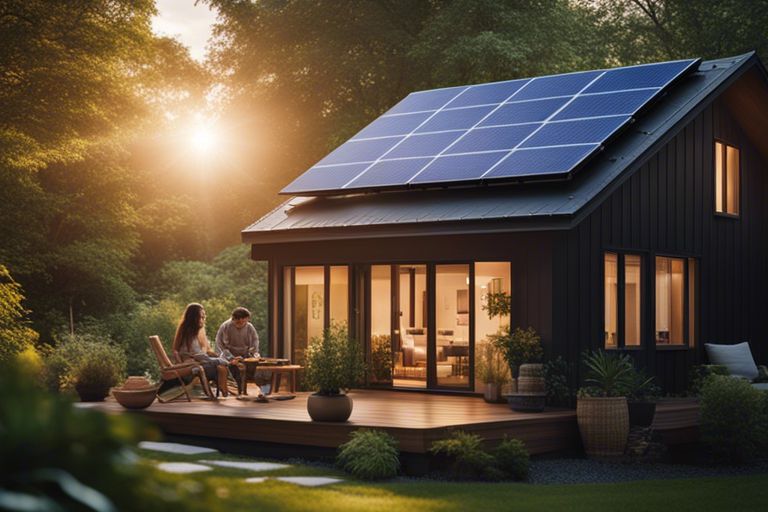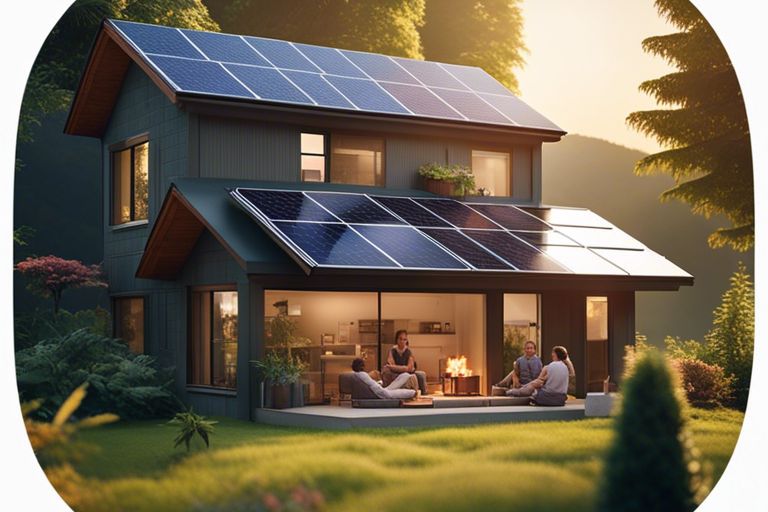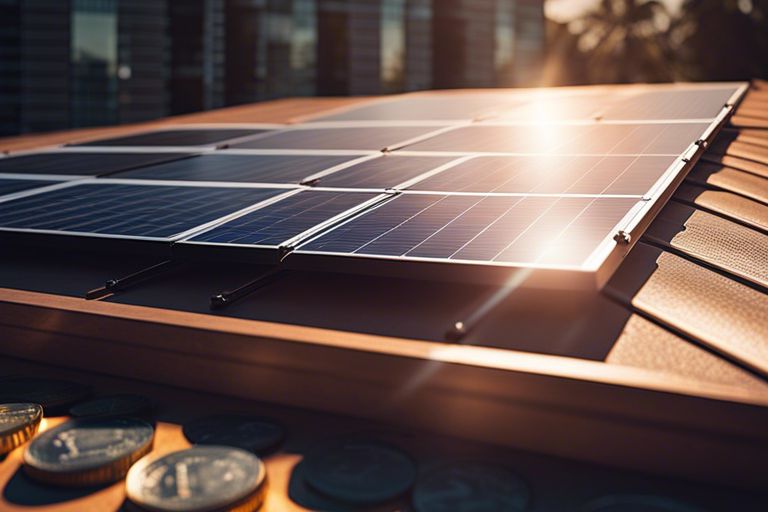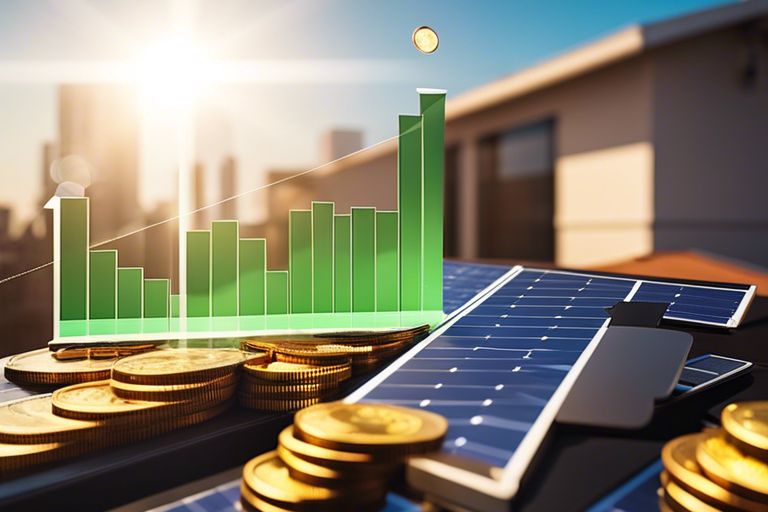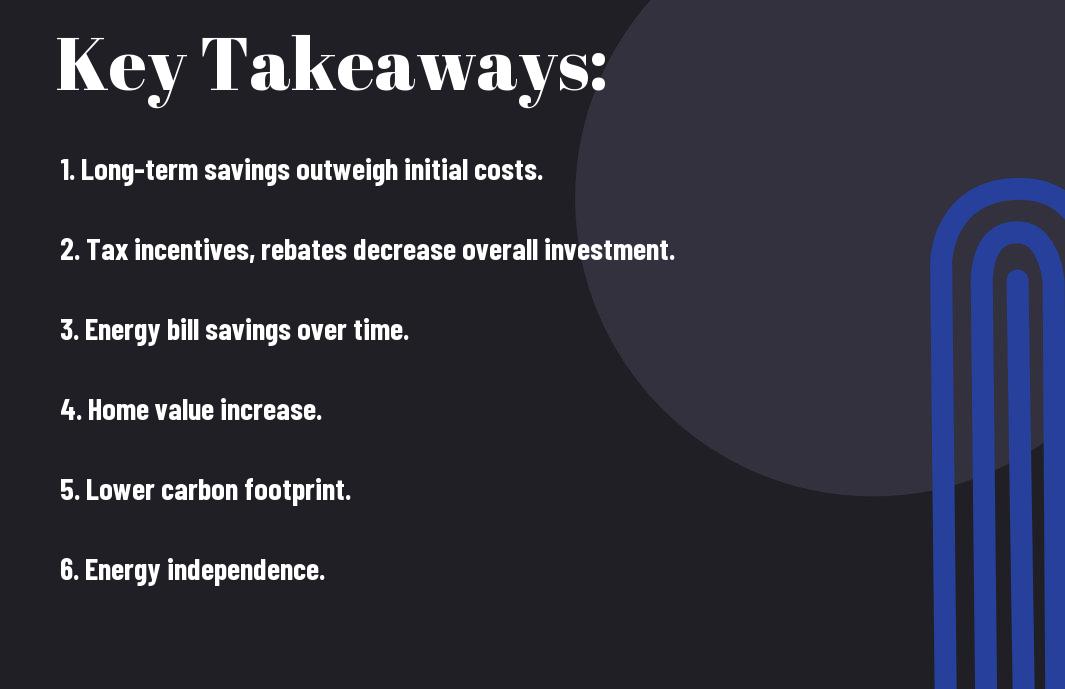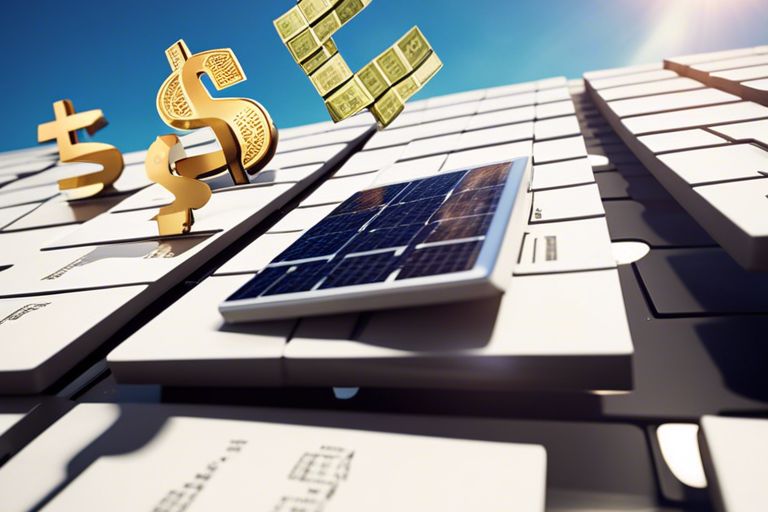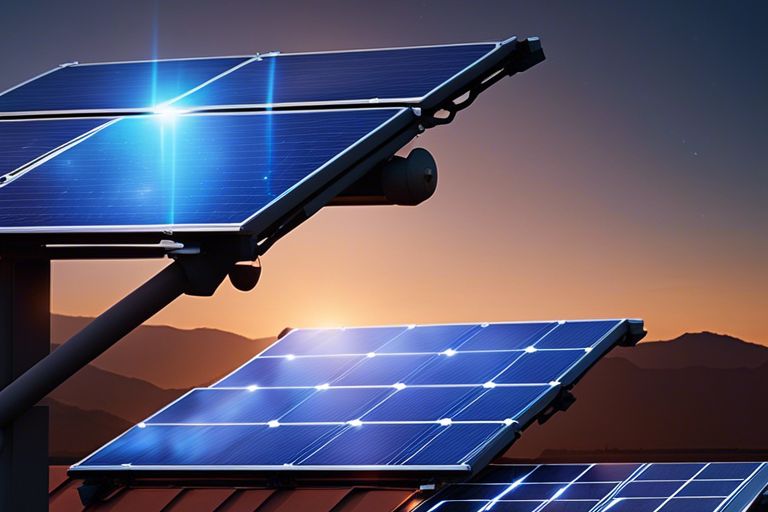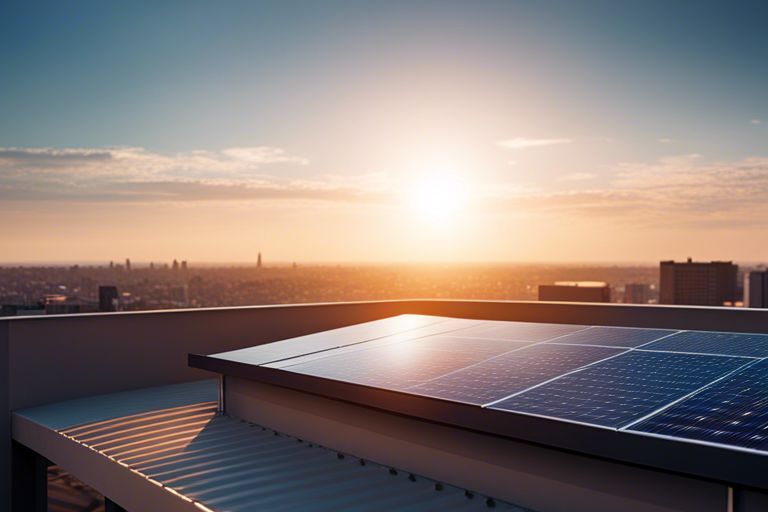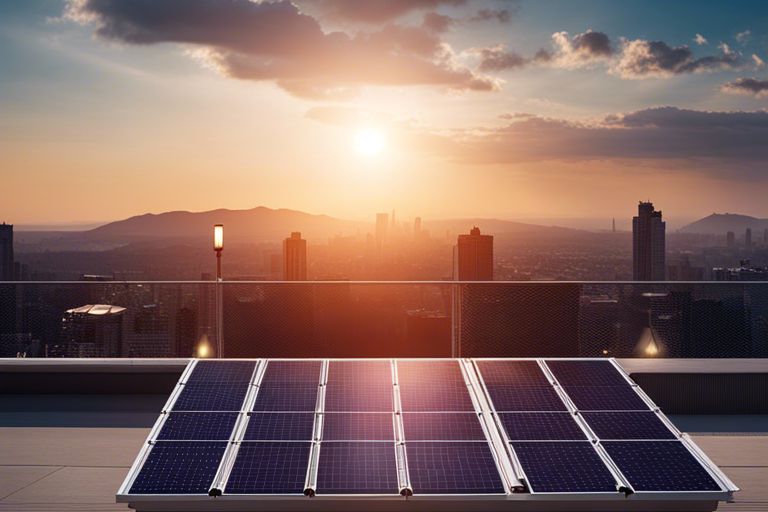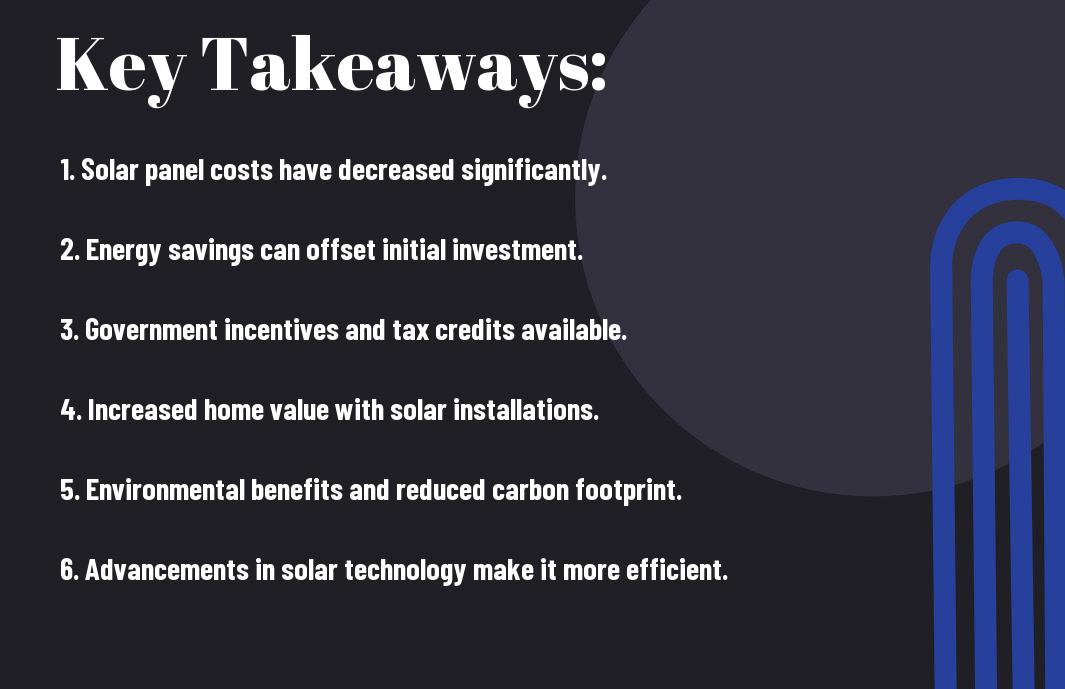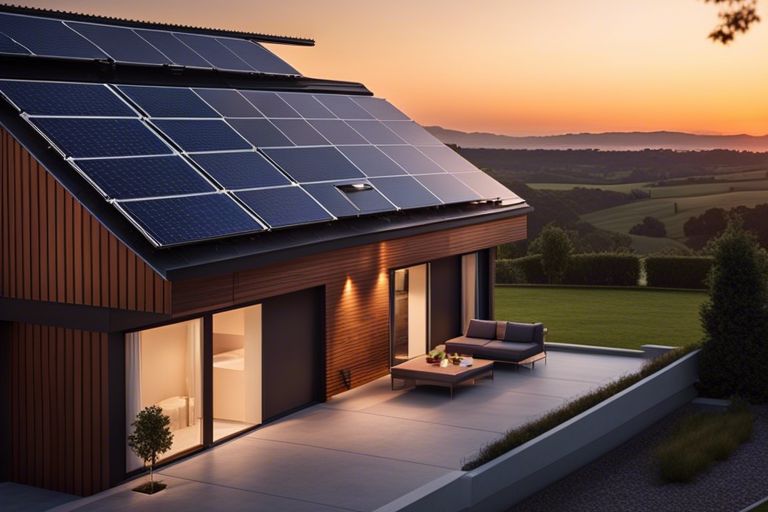Most people often wonder if investing in solar powered homes is truly worth it. When considering the switch to solar energy for your home, there are several factors to take into account. In this informative blog post, we will probe into the benefits and drawbacks of switching to solar power, helping you make an informed decision about whether solar powered homes are worth it for you.
Key Takeaways:
- Financial Savings: Solar powered homes can lead to significant long-term savings on electricity bills.
- Environmental Impact: Solar power reduces greenhouse gas emissions and helps combat climate change.
- Home Value: Installing solar panels can increase the resale value of a home and make it more attractive to potential buyers.
The Benefits of Solar Power
Environmental Advantages
A key benefit of solar power is its positive impact on the environment. By harnessing energy from the sun, solar panels generate electricity without producing harmful emissions that contribute to air pollution and climate change. When you opt for solar power in your home, you are reducing your carbon footprint and helping to combat the effects of global warming. This sustainable energy source also helps conserve natural resources and promotes a cleaner, greener future for generations to come.
Cost-Effective Energy Solution
One of the significant advantages of solar power is its cost-effectiveness as an energy solution. While the initial investment in solar panels and installation may seem substantial, you can reap long-term financial benefits through reduced energy bills and potential government incentives or tax credits. Over time, your solar power system can pay for itself and even generate savings on your electricity expenses. Additionally, with advancements in technology and growing demand for solar energy, the overall costs of solar panels continue to decrease, making it an increasingly affordable option for homeowners.
Choosing solar power for your home not only provides environmental benefits but also offers a smart financial investment. By generating your electricity from the sun, you can lower your energy costs and potentially increase the value of your property. As the demand for renewable energy continues to rise, investing in solar power can position you for long-term savings and a more sustainable lifestyle.
How Solar Powered Homes Work
Even if you’re not an expert in solar power, it’s important to have a basic understanding of how solar powered homes work. By harnessing the sun’s energy, these systems can provide electricity to power your home.
Photovoltaic Cells and Panels
Work begins with photovoltaic cells, commonly known as solar cells, which are the building blocks of solar panels. These cells absorb sunlight and convert it into direct current (DC) electricity. When sunlight hits the cells, electrons are set in motion, creating an electric current. Multiple cells are connected to form a solar panel, and several panels form a solar array, increasing the amount of electricity generated.
Inverters and Energy Storage
With inverters and energy storage, the generated electricity is converted into a usable form for your home. Inverters are important as they convert the DC electricity produced by the solar panels into alternating current (AC) electricity, which is what most homes use. Energy storage systems, such as batteries, store excess electricity generated during the day for use when there is little to no sunlight available, like at night or on cloudy days.
The inverters play a crucial role in ensuring that the electricity generated by your solar panels is compatible with your home’s electrical system. They also enable you to feed excess electricity back into the grid through a process called net metering, potentially saving you money on your electricity bills.
The Cost of Going Solar
Initial Investment and Installation
For many people, the initial cost of installing solar panels can be a significant investment. The price can vary depending on the size of your home, the quality of the panels, and the installation company you choose. However, the good news is that there are often government incentives, tax credits, and rebates available to help offset some of the costs. It’s important to weigh the upfront expenses against the long-term savings and benefits of using solar power.
Ongoing Maintenance and Upkeep
One of the attractive aspects of solar power is that it requires minimal maintenance compared to other energy systems. Once the panels are installed, there are few moving parts that can break down. You may need to occasionally clean the panels to ensure maximum efficiency, but overall, the upkeep is minimal. Additionally, most solar panels come with warranties that can cover any repairs or replacements needed, providing you with peace of mind.
One thing to consider with solar panels is that their efficiency can decrease slightly over time. However, this decline is usually minimal and can be offset by the long-term savings on your energy bills. Regular monitoring of your system can help you identify any issues early on and ensure that your panels are working at optimal capacity.
Initial Conclusion
In the final account, while the initial cost of going solar may seem daunting, the long-term benefits far outweigh the upfront investment. With the potential for savings on your energy bills, government incentives, and minimal maintenance required, transitioning to solar power can be a smart financial and environmental decision for your home.
Government Incentives and Rebates
After considering the initial cost of installing a solar power system on your home, you may be wondering if there are any government incentives or rebates that can help offset some of the expenses. Here is a breakdown of what you can expect in terms of federal and state tax credits, as well as local rebates and grants.
Federal and State Tax Credits
Rebates for solar panels can come in the form of federal and state tax credits. The Federal Investment Tax Credit (ITC) allows you to deduct a percentage of the cost of your solar panel system from your federal taxes. Currently, the ITC provides a 26% credit for systems installed in 2022. Some states also offer additional tax credits on top of the federal incentive, making solar panels even more affordable.
Local Rebates and Grants
Local rebates and grants are another way to save money on your solar panel installation. Many municipalities offer incentives to homeowners who choose to go solar. These can include cash rebates, property tax incentives, or even grants to help cover a portion of the upfront costs. By taking advantage of these local programs, you can make solar power an even more financially attractive option for your home.
Local rebates and grants vary by location, so be sure to check with your city or county government to see what programs are available to you. These incentives can change frequently, so it’s necessary to stay informed and take advantage of any opportunities to save money on your solar power system.
Overcoming Common Objections
Now, if you’re considering investing in solar power for your home but have concerns about its feasibility or cost-effectiveness, it’s important to address common objections that may be holding you back. One common objection is the intermittent nature of solar energy production, which can be worrisome for homeowners. However, according to Are Solar Panels Worth It?, advancements in battery storage technology have significantly improved the ability to store excess energy generated during peak sunlight hours for use during low-light periods.
Addressing Intermittent Energy Concerns
Overcoming intermittent energy concerns is a matter of understanding how battery storage systems can help bridge the gap between energy production and consumption. By storing excess energy during the day, you can ensure a stable power supply even when the sun is not shining. This advanced technology maximizes the benefits of solar energy and minimizes any disruptions to your power needs.
Debunking High Upfront Cost Myths
Any worries you may have about the high upfront costs associated with solar power should not deter you from exploring this sustainable energy option. While the initial investment may seem significant, it’s crucial to consider the long-term savings on your electricity bills and potential tax incentives or rebates available for solar installations. In fact, many homeowners find that the monthly savings on their energy bills can offset the initial costs within a few years.
Concerns about high upfront costs can be alleviated by exploring various financing options, such as solar loans or leasing programs, which can make solar power more accessible and affordable for homeowners. Additionally, the increase in home value that solar panels provide can make it a financially sound investment in the long run.
The Future of Solar Powered Homes
Many exciting advancements are on the horizon in the world of solar-powered homes.
Advancements in Technology and Efficiency
Technology continues to improve at a rapid pace, leading to more efficient solar panels and systems. Innovations in battery storage technology allow homeowners to store excess energy generated during the day for use at night, maximizing the benefits of solar power. Furthermore, smart home technology integration with solar systems enables better monitoring and optimization of energy usage, making it easier for you to manage your energy consumption.
With the increasing focus on sustainability and renewable energy sources, solar power is becoming more mainstream than ever before.
Increased Adoption and Mainstream Acceptance
The cost of installing solar panels has decreased significantly over the years, making it more accessible to homeowners like you. Incentives such as tax credits and rebates also make solar power a more attractive option. As more households adopt solar energy, it contributes to a larger shift towards clean energy practices and a reduced carbon footprint.
Mainstream Effects
As solar power becomes increasingly mainstream, it not only benefits individual homeowners but also has a positive impact on the environment as a whole. The widespread adoption of solar power can lead to a decrease in greenhouse gas emissions and reliance on non-renewable energy sources. Additionally, as the technology continues to improve and become more widely accepted, we can expect even greater advancements in the efficiency and affordability of solar-powered homes in the future.
Final Words
From above, it is clear that investing in a solar-powered home can have significant long-term benefits for both your wallet and the environment. Despite the initial costs, the savings on energy bills and potential tax incentives can make it a worthwhile investment. Additionally, the positive impact of reducing your carbon footprint and contributing to a more sustainable future cannot be overlooked. So, if you are considering going solar, weigh the costs and benefits carefully to make an informed decision that aligns with your goals and values.
FAQ
Q: Are solar powered homes worth it?
A: Yes, solar powered homes are worth it for several reasons. They can significantly reduce energy bills, increase the value of your property, and lower your carbon footprint by using clean, renewable energy.
Q: What are the financial benefits of having a solar powered home?
A: Solar powered homes can save homeowners money in the long run by reducing or eliminating monthly electricity bills. Additionally, some governments offer incentives such as tax credits or rebates for installing solar panels, making it a financially sound investment.
Q: Are solar panels low maintenance for homeowners?
A: Yes, solar panels are relatively low maintenance for homeowners. They require occasional cleaning to remove dust and debris, but they typically have no moving parts that can break down. Most solar panel systems come with warranties that cover maintenance and repairs, providing peace of mind for homeowners.
